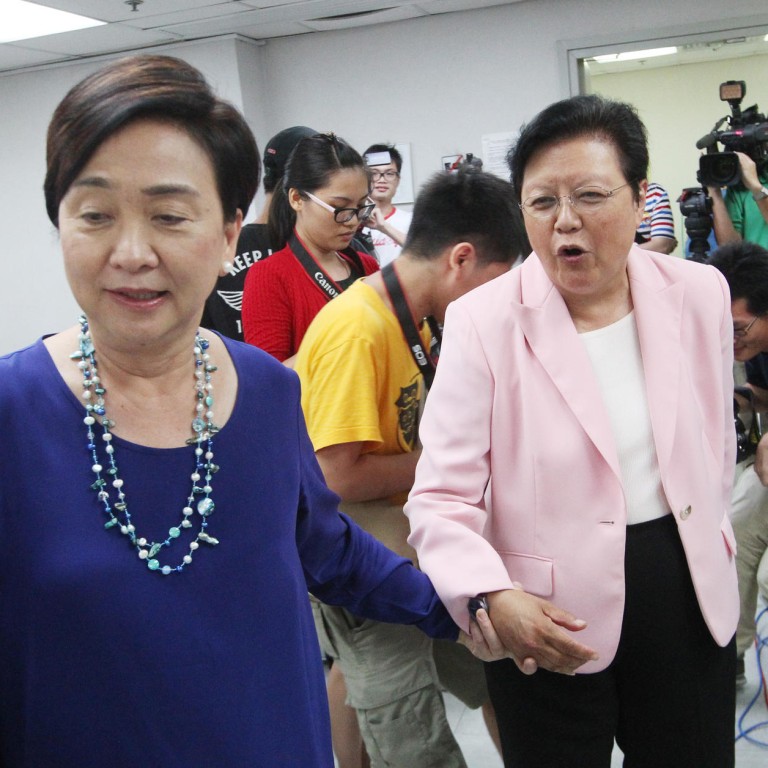
Failure of political reform could jeopardise national security, lawmaker warns
A deteriorating political atmosphere could put national security in jeopardy if complete democracy does not arrive in 2017, a Democratic Party lawmaker warned.
A deteriorating political atmosphere could put national security in jeopardy if complete democracy does not arrive in 2017, a Democratic Party lawmaker warned yesterday.
Helena Wong Pik-wan made the comment after she and about a dozen party colleagues met Hong Kong's sole representative on the Standing Committee of the National People's Congress (NPC), Rita Fan Hsu Lai-tai.
Beijing's representatives have said national security will be a top priority when considering democratic reforms for the 2017 chief executive election. The Standing Committee is expected this month to set a framework for reform. It is expected to set strict nomination requirements for candidates, making it unlikely critics of Beijing could run.
Fan said before the meeting that Beijing "clearly understands" the pan-democrats' opposition to what they call "screening", but said the central government had to take "national security" into account.
But Wong said it was political instability, not the prospect of a leader set against Beijing, that was the true threat to security.
"If political reform fails, the political environment in Hong Kong will quickly deteriorate, social division will be more serious, the city will be harder to govern … and an unstable Hong Kong could pose a real threat to national security," she said, adding that the Democrats did not want such a situation.
The meeting came a day after the Democrats met Beijing's top man in the city, liaison office chief Zhang Xiaoming , and four days after they met Dr David Wong Yau-kar, a local deputy to the NPC, on reform.
Zhang will continue to meet pan-democrats tomorrow and on Tuesday, before he is expected to join Basic Law Committee chairman Li Fei for a meeting in Shenzhen on Thursday to which all 70 lawmakers are invited.
The prospects of democracy in 2017 hang in the balance amid an impasse between Beijing and its loyalists and the pan-democratic camp.
Any reform package needs a two-thirds majority in the legislature, meaning about five pan-democrats must support it.
The series of meetings is seen as a last-ditch effort to narrow the gap before Beijing sets its framework ahead of a second round of government consultation, expected later this year.
Earlier yesterday, a war of words broke out between Democrat lawmaker Albert Ho Chun-yan and Executive Council member Cheng Yiu-tong, after Cheng said the time for dialogue was "over". Ho told Commercial Radio that Cheng was wrong, because even Zhang had said at Friday's meeting that it "wasn't too late" to talk.
But Cheng, president of the Federation of Trade Unions, stood by his comment and reiterated that pan-democrats should make concessions on reform.
Pan-democrats want the public to have the right to nominate candidates, while Beijing insists on a nominating committee that, critics say, will be stacked with its supporters.
Some Beijing loyalists expect the central government to insist candidates have the approval of more than half of the committee, in effect dooming pan-democratic hopes.

